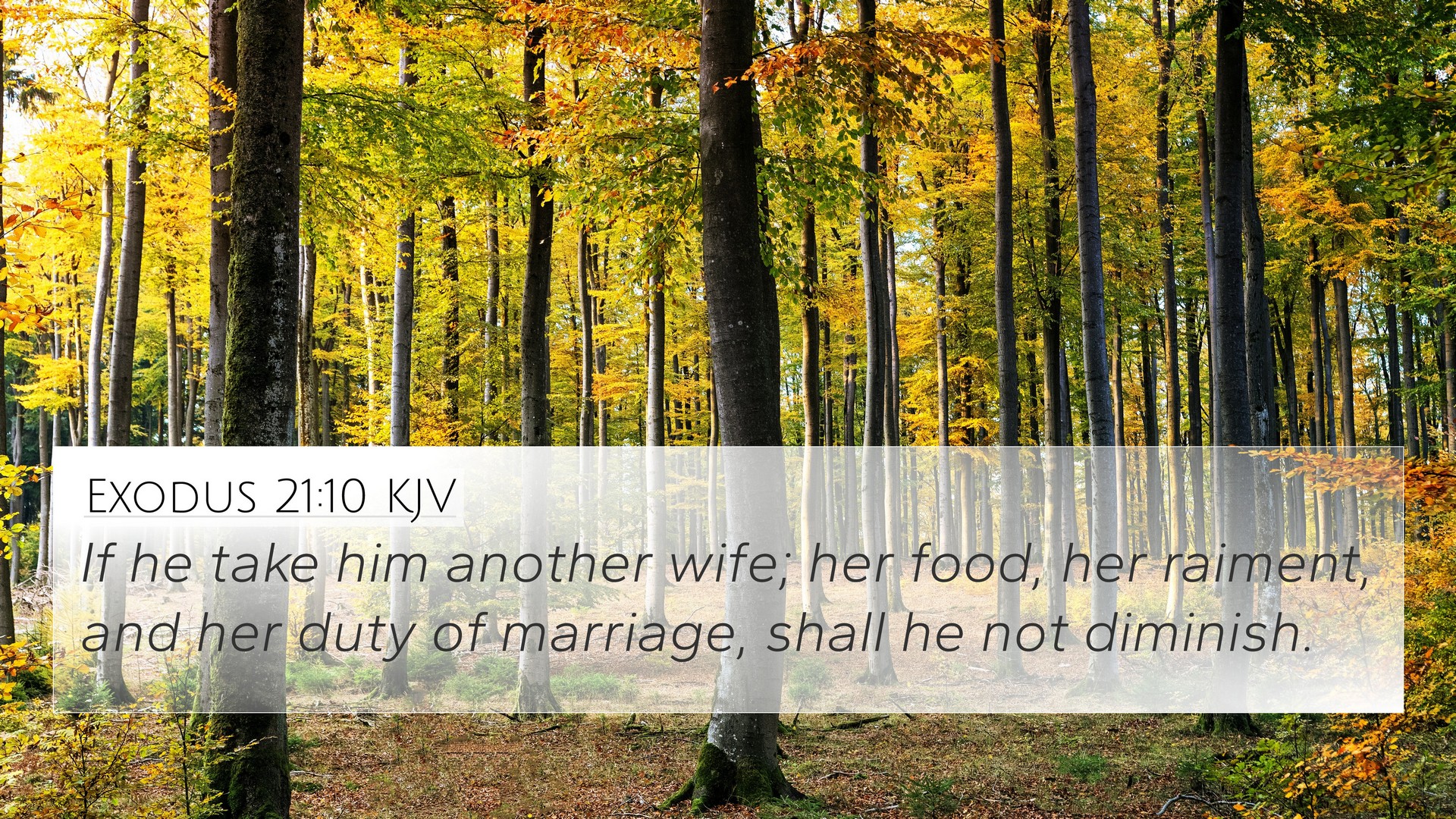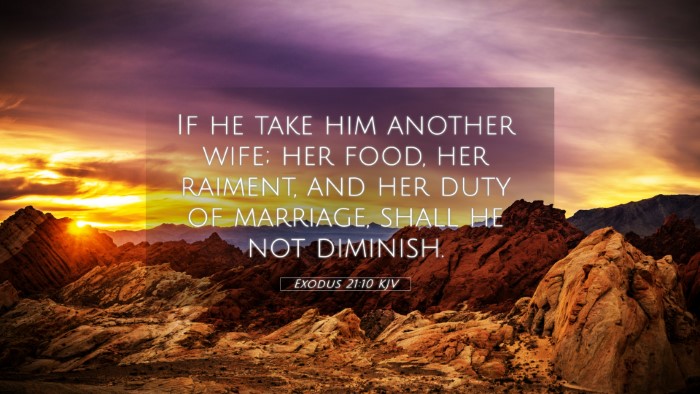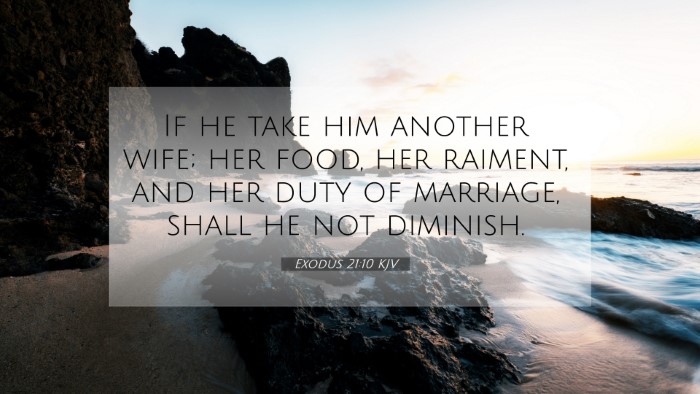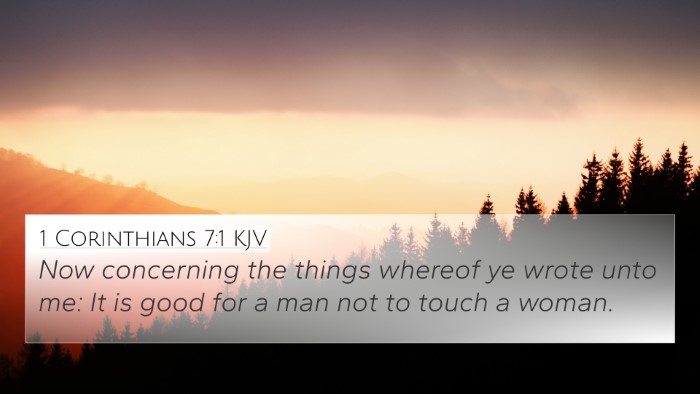Understanding Exodus 21:10
Exodus 21:10 reads: "If he takes to himself another wife, he shall not diminish her food, her clothing, or her conjugal rights." This verse is part of the laws given to the Israelites regarding social justice and the treatment of family members, particularly wives, in the context of polygamous marriages.
Context and Background
The passage addresses the responsibilities of a husband towards his wives. In ancient Israelite culture, polygamy was practiced, and this law serves to protect the rights of the first wife when her husband takes another wife. The implications of this verse extend beyond mere marital duties; they touch on themes of justice, compassion, and care within familial relationships.
Insights from Commentaries
Matthew Henry's Commentary
Matthew Henry emphasizes that the husband is obligated to ensure that the primary wife is treated justly and with respect. He notes that despite the man's ability to take another wife, this should not lead to neglect or oppression of the first wife. Henry argues that the law shows God's concern for the vulnerable and signifies the need for love and provision in marriage.
Albert Barnes' Notes on the Bible
Barnes explains that the verse highlights the importance of equitable treatment. He points out that while polygamy was allowed in Israel, it was not without limitations. The husband must provide for the emotional and physical needs of all his wives, thus advocating for the integrity and support required in marital relationships.
Adam Clarke's Commentary
Adam Clarke provides a detailed analysis of the rights discussed in this verse, viewing it as a legal protection aimed at preventing injustices toward the first wife. He insists that the sustenance defined here—food, clothing, and sexual rights—are essential for maintaining dignity and harmony within the household.
Thematic Connections and Cross-References
This verse connects to several significant themes within the Bible that address marriage, rights, and responsibility. Below are key relationships to other scriptures:
- Deuteronomy 21:15-17: Discusses the rights of first-born sons in mixed family situations.
- 1 Timothy 5:8: Addresses the responsibility of a man to provide for his household.
- Ephesians 5:25: Encourages husbands to love their wives sacrificially.
- Malachi 2:14-16: Talks about the faithfulness in marriage and the importance of covenant relationships.
- Matthew 19:4-6: Jesus speaks about the sanctity of marriage, suggesting a foundational view of monogamy.
- 1 Peter 3:7: Advises husbands to honor their wives and recognize them as equal heirs of grace.
- Proverbs 31:10-31: Depicts the virtuous wife, focusing on her value and the attention she deserves.
Cross-Referencing Insights
The process of cross-referencing Bible verses can reveal deeper insights and connections between texts. Here are some tools and methodologies for effective Bible cross-referencing:
- Utilize a Bible concordance to find related terms and concepts across different verses.
- Leverage a cross-reference Bible study guide to trace thematic links.
- Employ Bible reference resources and comprehensive materials for extensive studies.
Concluding Thoughts
Exodus 21:10 illustrates the intricate balance of familial rights and responsibilities within biblical law. Understanding this verse through connecting it to other scriptures enhances our comprehension of its place in biblical narrative and legal instruction. The treatment of the first wife in the case of a polygamous marriage reflects broader biblical themes of justice, respect, and love within God's design for relationships.



